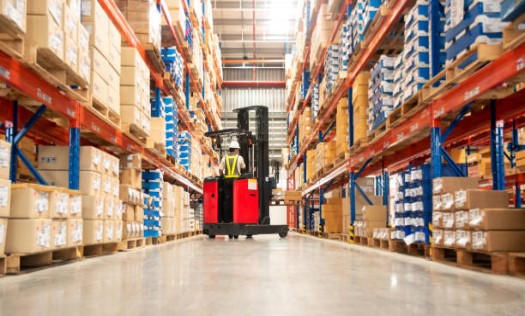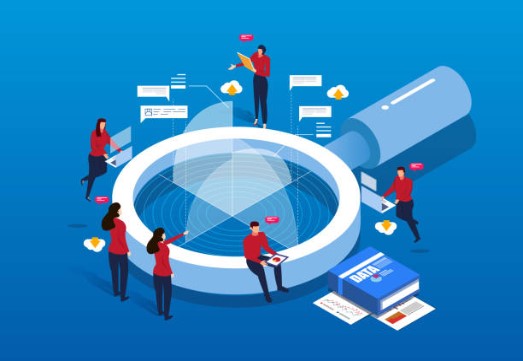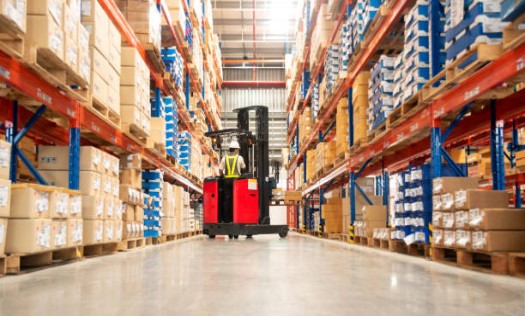-
Supply Chain Management the Value

Supply Chain Management (also known as SCM) is an important part of any organization. However, some organizations take it casually. They are therefore required to make a smaller profit margin. Let’s take a look at what supply chain management actually is. It is essentially a flow diagram that shows the movement of goods and services from their origin to their end. A true SCM begins at the beginning of goods and ends at the end-user.
It’s a cross-functional activity that involves taking control of the import of raw materials into a company. There are certain aspects to the inside processing these materials into finished products. This is called work in progress. The finished goods are then sent out of the company to the end-user via distributor, wholesaler, and retailer. This is the core flow of SCM.
It is a chain process, as the name suggests. The Supply Chain Management Specialization entire system may be at risk if one or more of these parts becomes weaker or weaker. Experts say that we must take care of every part of the entire system. It can sometimes be very difficult to maintain a long supply line. Many companies are trying to reduce the supply chain. They reduce the supply of raw materials and make the distribution channels smaller.
What could they gain from such a plan? You will have more people to pay if you increase the number of your distributors or suppliers. You will either have to reduce your margin of profit, or increase the selling price for those goods. You will make less profit if you reduce your margin of profit. The same applies to selling prices. If you raise them, your competitors will be able to easily defeat you by offering the exact product at a lower price.
It is smart to think up a good idea and then implement it in your company. But small supply chain management isn’t the answer. It all depends on the situation and the business. It is always a good idea to consult experts before implementing any strategy. A wide distribution channel can be extremely crucial. The success of any business depends on its supply chain management.
-
Supply Chain Management What’s involved?

Most people don’t think twice about where the products came from when they shop at a supermarket. Our favorite products are simply added to our shopping carts and we head towards the counter. Did you know that there were many people involved in the delivery of these products from the factory to your local supermarket shelves? Supply chain management is also known as logistics and is a complex process that involves logistics.
After a product has been manufactured in a factory it must first be transported to the primary distributor. A warehouse might be owned by the primary distributor, from which the products could then be transported to the secondary distributor. Warehousing refers to the safe storage of goods in the correct environment, before they are used at another point in the supply chain. Sometimes goods must be stored before they are shipped to another country or region far from their original location.
Supply Management Training Transport plays a major role in the movement of goods from one place to another during distribution. Because it is cheaper to transport larger quantities of goods at once, large vehicles are required to transport them from the factory to the warehouse. The products would be transported using smaller vehicles from the warehouse to final distribution points such as supermarkets, shopping centers, and grocery stores.
There are many services involved in every stage of the supply chain, and most of them are outsourced to other agents. Some companies offer turnkey supply chain management services, which allow them to have access to multiple third-party service providers and coordinate them to get the goods to the supermarket shelves.
They offer supply chain consulting services for chain stores who need to improve their productivity in order to make more profit. Transport is an important subsystem. It involves fleet management, whether owned or rented.
To optimize their processes, supermarkets and chain shops can use the services of supply-chain mobility companies. This allows them to plan and manage efficiently. These services can efficiently handle all tasks related to the delivery of products from manufacturer to retailer because they have central access to distributors, suppliers, and warehousing providers.
-
Professional Logistics Training for Your Business

An experienced logistics manager can help you reduce costs and expenses within your business. Although there are many logistics management companies, you need to find one that can meet your needs. The demand for logistics training is increasing with each passing year. The popularity of logistics training is growing all over the globe.
Logistics Training is Important:
Business owners don’t employ a logistics manager to provide their services. They don’t realize the importance of this service and the benefits it can bring to their business. It is essential to organize and maintain a large business process.
Managers can benefit from professional logistic training. These strategies are essential to keep the operations running smoothly, profitable, and productive. He or she may also offer advice on improving the business process or handling any obstacles.
A well-qualified logistic manager can make a huge difference to a logistics company. A manager will manage everything and ensure that things are well-planned. To make the business efficient, productive, and happy, the manager will plan for the other employees. The manager can focus on the specific tasks and work of each staff member so that operations flow smoothly and are not interrupted.
Staff who don’t know their tasks can cause disruptions in operations and may even lead to production delays. A logistics manager can help staff understand the importance of their role in any company. It will also increase their respect and value. They can increase their self-confidence by receiving logistics training.
Why one should take a professional logistics training program:
Any business needs professional Supply Chain and Logistics Training. A logistics manager can make a cost-effective business plan by receiving proper training. An expert can manage the tanning materials and its management with the right training. This person will make sure that the company can earn maximum profits. The training program can have a significant impact on any company. It can increase production.
To sum it all, business success requires training in logistics. From making decisions to implementing strategies, logistics managers have a lot of responsibilities. A professional logistics manager will help a business owner take the correct actions so that every aspect of their business is taken care of.
A business is not just about selling and buying. A business has many components. This training will help you learn more about logistics management. The training program will teach a professional how to manage the logistics system of any organization. If the training is not provided, it can hinder the business’s ability to handle the logistics system.
-
Role of inventory control in supply chain management

Many experts believe that supply chain management should have the focus on logistics and inventory control to achieve the desired success. However, there are a few key factors that could have an impact on supply chain management by controlling inventories.
Problems to be addressed
There are many issues that must be addressed when trying to implement an efficient system for stock and inventory control using retail software. These are some of the most important issues that need to be addressed. Management type required for a particular enterprise.
Factors that impact the inventory cost
It is important to decide whether it would be a good idea to keep large inventories, or if it would be better to limit it only in a specific size.
Pick into History
An overview of the history and methods used to control inventory could be helpful in preparing the plans and strategies required. Some food manufacturers made a significant consumer response in the 1990s by shifting their focus away from logistics costs to examine the supply chains. These companies also made customer service a key focus. The ultimate goal of the new approach was to balance inventory so that it is neither too large nor too small for business operations.
Relationship between Supply Chain Management and Inventory
It is common to believe that Supply Chain Training and inventory have many interrelations. The cost of inventory has fallen by almost 60%, while transportation costs have also decreased significantly with the advent of supply chain management. Industries today are reducing inventory costs to manage their supply chains.
General Approaches to Inventory Control
Most businesses use a general approach to inventory control. This involves the management of inventory items. Most enterprises use the system to manage production schedules and procure raw materials. The system must also be used for point-of-sale locations and sales.
Cost Reduction
Many businessmen don’t get involved with the active management of inventories. They know that any reduction in inventories will be outweighed by the decrease in production costs that can be achieved by having a steady, substantive inventory. However, it is essential that every company adapts to the changing environment and manages inventories so they are profitable at both the production and sales points. This could be possible with the help of retail software.
-
Implementing a Logistics Management Program Evaluation of the Options
Logistics management programs are a part of the supply chain management aspect of the shipping industry. They plan and execute the flow of products from retailer to distributor or customer to customer. Many shippers don’t believe they have an official logistics program. This could be because their shipping process doesn’t require much effort or because they use a logistics provider to manage their shipping. However, no matter how a company views its shipping process, there is a good chance that it adheres to basic logistical concerns such as route quality and delivery time. These are all areas that could be improved upon with logistical analysis.

For More Info : Supply Chain and Logistics Training
-
Why Businesses should use Manufacturing Consultants
To be a leader in their market, a competitive company must have a strong sense for time management and motivation to achieve goals. It is crucial for an organization to achieve their production and sales goals and repeat them. Capital investment alone is not sufficient. Organizations must also consider other factors, such as time, cost, production, and products, when streamlining business processes. This streamlining is only possible with proper planning, keeping up to date with technological advances, market trends, changing demands, and good planning.

For More Info : Production and Manufacturing Training
-
Efficient Global Supply Chain Management is key to Success
Companies that used to do business in their home country have discovered many opportunities when they expand their operations abroad. These opportunities could be financial, as they allow companies to tap into economies in other countries that are not affected by the current financial crisis or offer products and services at significant savings. Globalization comes with its risks, especially in the supply chain. It can be extremely difficult to plan for the many variables involved in business operations overseas.

For More Info : Supply Chain Management Specialization
-
Logistics Management the Benefits
For a more efficient production output, it is crucial to understand the company’s processes and master them. To achieve business goals, logistics management is essential. Logistics management is the organization of material movement and sometimes people. Supply Chain and Logistics Training was initially associated with the military. The term logistics was initially used to describe military operations.

For More Info : Supply Chain and Logistics Training
-
Supply Chain Management and Point-of-Use Logistics
If business leaders talk about supplier value-added partnerships, but treat suppliers as enemies, companies will not be able to grow and profit fully. Materials handling and inventory storage are non-value-added, high-cost activities in manufacturing. All manufacturers should make eliminating the stock room a priority. It is not new to move materials from their point of use. The auto industry has done this since its inception. All industries have experienced success with low-cost Supply Chain Management, point-of–use hardware.

For More Info : Supply Chain Management
-
Manufacturing Inventory Management Software
Software that manages manufacturing inventory is a highly specialized package. It monitors and manages inventory at all stages of the manufacturing process. This software automates the purchase orders, tracking inventory usage at every manufacturing stage, periodic checking for inventory levels, and reordering depleted stock. The manufacturing inventory management software is a critical component of automation. This software allows for faster processing and minimal human intervention. For greater productivity and better use of resources, a company can depend on manufacturing inventory software.

For More Info : Manufacturing Training and eLearning
-
Subscribe
Subscribed
Already have a WordPress.com account? Log in now.